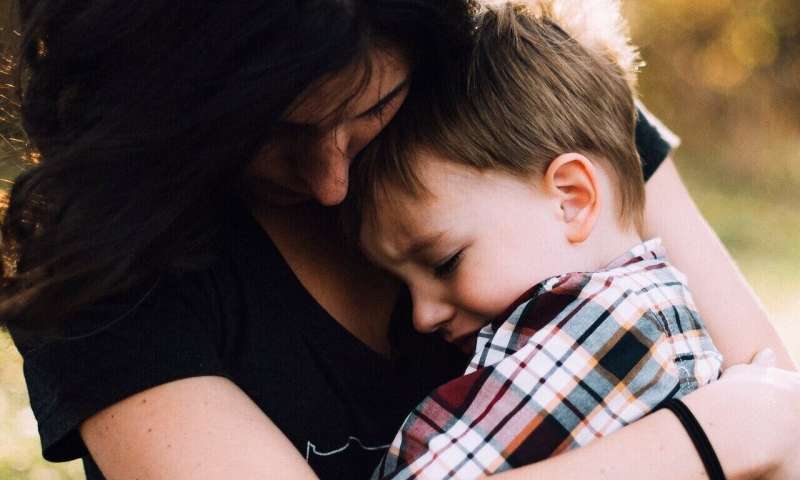Helicopter parents should step back and watch

Sitting back and watching your toddler explore their world is good for parent mental health, a new study has found.
As part of her Ph.D. at Edith Cowan University, Mandy Richardson conducted the world's first data-driven study of parenting classes based on the Respectful Approach intervention.
The Respectful Approach, modeled on Resources for Infant Educators (RIE)TM, guides parents to treat young children as capable and independent humans who can flourish if given safe space and freedom from too much adult direction.
Parents were invited to take part in a class for infants or toddlers over six weeks where they observed their children in uninterrupted play in a room with age appropriate toys.
The infants and toddlers were free to investigate their environment and interact with other children while parents sat in the room and watched with a facilitator. After an observation period, each class introduced and discussed a topic related to the Respectful Approach.
At the end of the program, parents reported significantly lower stress levels, with more confidence and a better understanding of their children's capabilities.
Children make progress when given space and time
Ms Richardson said the Respectful Approach is ultimately about building a trusting, lasting bond with positive communication between parents and children. There is less focus on checklists and achieving milestones, with acknowledgement that each child is different.
"Participants in the study reported worrying less about performance pressure after attending the classes, which let them refocus on their relationship with their children," she said.
"As parents we tend to go and 'save' our children when they start to struggle with something, instead of letting them try to resolve their own challenges. But if the children aren't looking for help, perhaps they can be left to do their own thing and work it out themselves."
Ms Richardson explained the Respectful Approach helps to establish good patterns in early years so children learn to build confidence in their abilities and to deal with conflict in emotionally intelligent ways.
"Traditionally early behavioral interventions have predominantly focused on modifying undesirable child behaviors," Ms Richardson said.
"By building good communication and a close parent-child bond, we can potentially prevent problems occurring in the long term."
Ms Richardson and her research supervisor Associate Professor Therese O'Sullivan are now expanding the pilot study to track parents and children over three years to determine whether the decline in parental stress levels has a lasting impact and investigate long term outcomes in child development.
More information: Amanda C. Richardson et al. A Quasi-Experimental Study of the Respectful Approach on Early Parenting Competence and Stress, Journal of Child and Family Studies (2020). DOI: 10.1007/s10826-020-01762-w



















